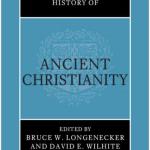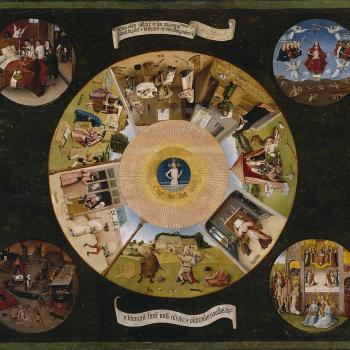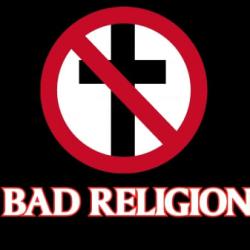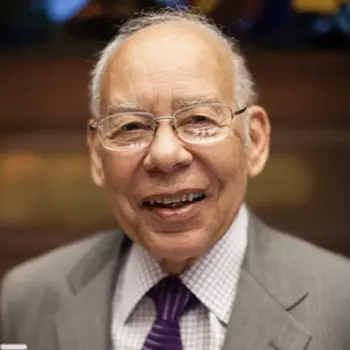In the 1980s when I was growing up as a pastor’s daughter in a conservative Christian context, I kept my ear to the ground for the whispers of the adults around me. As a budding scholar of history, I was already tuned in to the rumors of the world, understanding that what is often considered “mere gossip” can contain the most significant insights into human motivations, culture, and emotional experience. Often, what I was hearing was the evaluation of why someone who had once been publicly important to our tradition was not allowed to preach or lead anymore—or, in today’s parlance, who the church had chosen to “cancel” and why.
Sometimes this was because there had been financial misconduct, or perhaps theological changes that caused the rejection. But in my childhood and in my tradition, it could just as easily be that they had gotten a divorce or had an affair. While my local denomination had its own scandals, occasionally I caught wind of larger evangelical cancellations. Amy Grant, contemporary Christian music goddess of my youth, for instance, got a divorce in mid-life, and (piled on top of her releasing music on mainstream radio) became less prominent in Christian books stores or Christian radio.
Today we think of “cancel culture” much more broadly. While conservative purists may have invented highly effective tactic of cancelling performers and preachers who strayed certain ways, in the era of social media following and influencer culture, progressives also have quickly learned to call out and then boycott folks whose behavior and ideas they find reprehensible.
I’m not saying anything new here. People have the right to stop following or giving money to people they disagree with or whose behavior they don’t want to reward. “Shunning” is what it was called in the pre-modern world, and it is an extremely effective form of punishment. Humans are a herd species. We need each other and being ignored or excluded is incredibly painful. It’s meant to be. I’m not entirely opposed to this as a necessary activity in a world where our individual actions are perhaps our only areas of control and celebrity culture seeps in to all our actions.
However, I spend my days and weeks with 18-25 year olds. This is now the only world they know. And they have imbibed this sort of “purity culture” (on both the right and the left) so very thoroughly that they don’t know how to be part of communities that include people they disagree with and how to belong in a society where not everyone behaves appropriately or morally. They don’t know how to be part of a loyal dissent, or how to confront while staying present with a group over a long period of time. What I see going on is a cult of innocence.
Humans have often desired innocence and defensiveness has been around for a long time. Adam in the Garden of Eden, confronted by his Creator, quickly blamed the Woman, and she in turn blamed the Serpent. We want to be innocent. But the fundamental posture of the Christian is confession. It is the first thing we must do as we orient our place in the world. We are broken, we make mistakes—we sin. Christianity offers forgiveness—Jesus is the Center of that salvation/redemption narrative. And confession is core to our receiving the gift of forgiveness. Christians are oriented on our knees—we receive Divine love and forgiveness and then we practice giving it to and with each other.
Increasingly, our North American society is becoming more atomized. Fewer of us are part of communities that include people we disagree with. We don’t join clubs or political parties and are disaggregating from many of the civil society organizations that have contributed to flourishing and trust-building and democratic relationships. In my circles, I hear frequently “I can’t join that [insert group type] because I can’t sign on to everything they believe or do.” Or “I reject that entire group/institution because of how they were in the past.” We want innocence and all too often we don’t want to have to confess our collective sins or admit our group has been wrong—we want to step OUT of the group or organization and then turn and point back to them and say: “see they were terrible and thank God I’m not part of that anymore.” We get innocence by disassociation.[i] Bob Smietana’s recent Reogranized Religion: The Reshaping of the American Church and Why it Matters explores this with respect to churches. But it is true of many organizations.
As a historian, I study humans and their societies, behaviors, and ideas. These are all the beloved children of God, but much of what we end up having in terms of historical evidence is people behaving badly. These are broken systems and people, but also delightful and interesting and sometimes inspiring. And sometimes horrifying. As I guide my students through this study of the past, I have to consistently remind them (and myself) that we seek understanding, not heroes or villains. We are telling the truth. (This is sometimes known as confession.)
It’s tempting for Christians in my own tradition to want to trace their ancestry in a long (unbroken) line of “pure” Christians who they are part of, people who never believed wrong things or who were the victims, the oppressed. It’s easy for the historically naive to label everyone they disagree with as a bad Christian or the enemy, motivated by power or money. And while Protestants have promoted this sort of narrative for a long time, I find today’s emotional commitment to belonging only to pure groups to be increasingly crippling.
I think good historical thinking could help us here. Chris Gehrz has described one way of doing this in a church setting. It’s easier for me as a historian of the early modern world because my subjects are further in the past with less immediacy. We can be honest about how and what people did in the past, with its possible implications for the present, but without so much identification with them that it stymies honesty. Maybe studying the pre-modern world can help us practice understanding and acceptance of complexity in the past, so we can also have it in the present.
There’s a difference between leaving organizations or groups that don’t represent our ideas or abuse us and wanting to see ourselves as innocent, rejecting any association with the guilty who are dead. Because none of us gets to reject the history of our community, nation, society, ancestors. None of us come into the world unconnected or unaffected for good or bad from the choices of those who have gone before. We are all born into a culture, one that has been shaped over long periods of time. In this way, none of us gets to ignore that, or what has happened before. We aren’t starting out brand new with no history, and so we need to tell the truth about how we got here and what the other options might have been—the losers as well as the winners in the arc of history.
I start the beginning of most of my classes most semesters by saying “This class is intended to help you love better. All knowing should lead to better loving, otherwise it is power-mongering. And loving without knowledge is superficial.” Defensiveness and rejection prevent us from loving better; and putting every society or person in the past into categories of “acceptance” or “rejection” prevents us from becoming skilled at historical thinking. Historical thinking is valuable for many reasons. (John Fea’s book on this subject outlines the 5 C’s: understanding causation and contingency, learning the importance of context, expecting and looking for complexity and change over time). 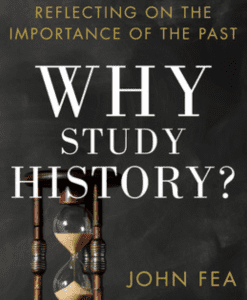 But all too often it seems that instead of finding out something about the past and saying, “oh wow, I understand better”, we want to say “Thank goodness I am nothing like that and I’m now going to reject all descendants of that group or idea or political entity.”
But all too often it seems that instead of finding out something about the past and saying, “oh wow, I understand better”, we want to say “Thank goodness I am nothing like that and I’m now going to reject all descendants of that group or idea or political entity.”
My students’ desire for innocence, I believe is part of their crisis regarding anxiety and perfectionism. They don’t accept folks in the past with flaws, so they don’t accept their own flaws. They don’t allow themselves space to learn over a long time. Studying history can give them tolerance for how hard change is and perhaps some resilience for making mistakes and then admitting them and then moving forward. Perhaps if we can become affectionate about ancient humans we don’t understand at all and whose priorities horrify us, we can learn to feel affection for humans in the present even as we negotiate with them about how best to organize in diverse communities that contribute to human flourishing.
[i] Make no mistake: this is not the same thing as leaving an abusive relationship. I’m talking about wanting to be above reproach and not associating with anyone who could be criticized by others.


